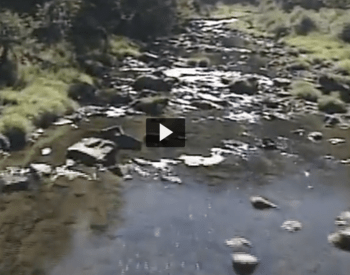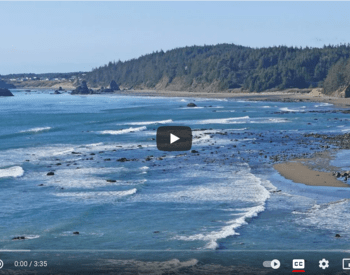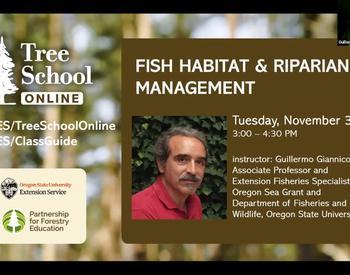NEWPORT, Ore. – As the weather warms up and Oregonians head out in their boats to fish and enjoy time on the water, they should also think about something we all have to do.
“Going to the bathroom should not hold you back from having a fun day,” said Connie Sullivan, Clean Boating coordinator for Oregon Sea Grant Extension.
To keep waterways healthy and sewage free, boat holding-tank pumpouts, portable toilet dump stations and floating restrooms are available across Oregon’s popular boating and fishing areas as part of the national Clean Vessel Act grant program.
“There are lots of alternatives in Oregon for sewage disposal,” Sullivan said. “We have 133 pieces of equipment around the state and only three of them are pay as you go. In Oregon we are really proud that most of it is free.”
Local facilities maintain that equipment which provides boaters and sport fishermen with a way to properly dispose of sewage waste, in partnership with the Oregon State Marine Board, U.S. Fish and Wildlife Service Sport Fish Restoration Program and boating facilities across the state.
Sullivan is responsible for annual checks on these facilities.
“I visit every piece of equipment once a year and there is a significant portion that I visit twice,” Sullivan said.
These facilities are funded from taxes and fees on motorboat fuel, motorboat registration fees and taxes on certain fishing gear. “We can point to something the boater paid for and say ‘that tax you paid, it went right here,’” Sullivan said.
Fecal matter can impact nutrient load in waterways and close down shellfish beds and swimming beaches. Oysters in particular are susceptible to too much bacterial buildup, Sullivan said.
“We know we are having a huge impact, just knowing how much sewage we keep out of waterways,” Sullivan said. “Additionally, several floating restrooms are in drinking water reservoirs, so we are keeping sewage out of drinking water.”
Sullivan works with host facilities to ensure they have what they need for the upcoming season, as well as establish networks for facility managers to learn from each other. Oregon Sea Grant has also developed videos for facility managers.
“I wanted facility managers to be able to network with each other so they can learn from each other. I started doing workshops where they can all get together, see who else has similar set ups, similar equipment, learn from each other, I believe in peer-to-peer learning and growing community from that,” Sullivan said.
In addition to working with facilities managers Sullivan specializes in outreach initiatives such as boat shows and boating seminars. Sullivan’s goal is to prepare boaters to answer the question: “Do you know where to go when you have to go?”
For pumping out the tank connected to an installed restroom on a boat, Sullivan recommends a how-to video produced by Washington Sea Grant.
“Boaters can be intimated by pumping out specifically. Most boaters I know have an absolute horror story of that creating a blowback,” Sullivan said.
If it’s a new boat, Sullivan suggests filling up the tank with water and practicing on the clean tank.
“If you use your boat’s head and realize you don’t know how to pump out, call the facility you are going to be pumping out at ahead of time and see if they can have someone on site to help you,” Sullivan said. “There are instructions on the equipment for how to use it and they are done in pictures to try and make it accessible as possible.”
Portable toilet dump stations also have instructions at the facilities and a floating restroom is as easy as docking your boat correctly and going into an enclosed stall.
“Anybody can do this stuff,” Sullivan said.
The Clean Boater Pledge is a great way to get involved and learn more about how to be a clean boater, according to Sullivan. Pumpout Nav is an app that shows locations, facility types, contact info for pumpouts, floating restrooms and portable toilet dump stations across the West Coast.
Sullivan recommends planning in advance for your boating day. Before you head out call your facility and make sure they are open. Know where to go, know how to use it, be prepared.
“I hope people walk away with the empowerment to know what to do, knowing what they do does have an impact and a little bit does go a long way,” Sullivan said.



















